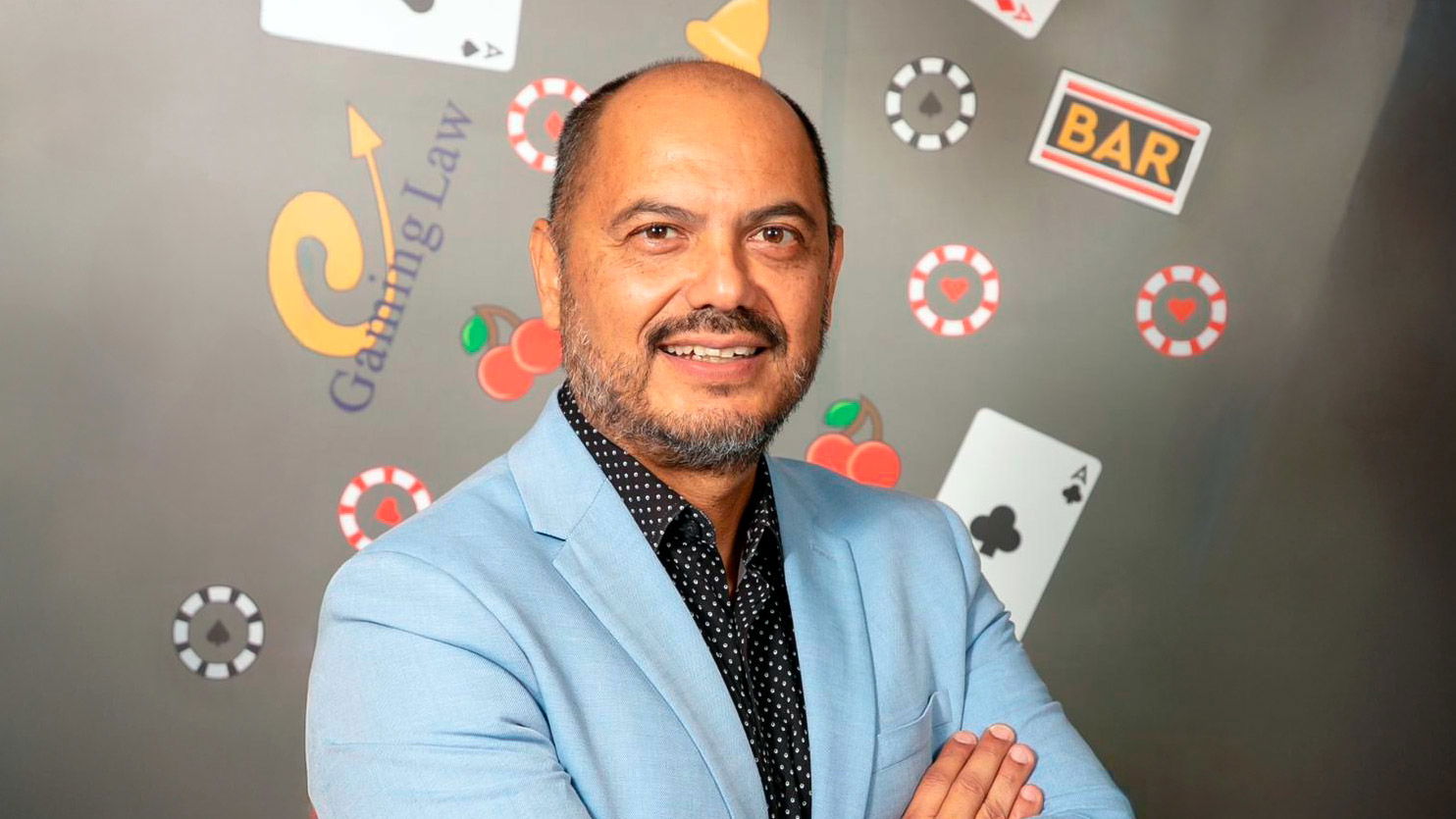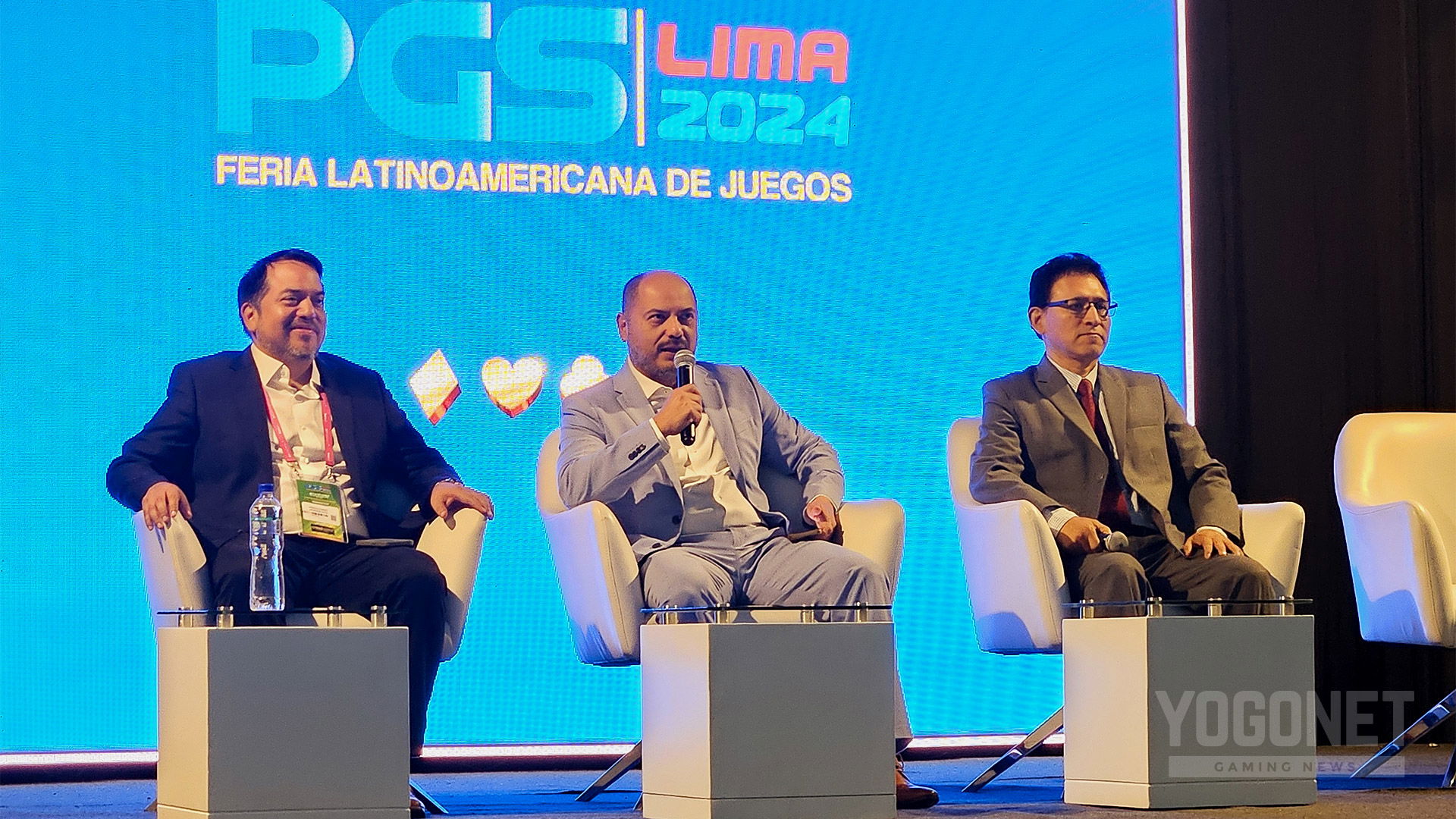Attorney Carlos Fonseca Sarmiento, partner of Fonseca Abogados LLC, will be one of the speakers at the next edition of the SBC Summit Latin America, an event to be held from October 29-31 at the Seminole Hard Rock Hotel & Casino in Miami, Florida.
In an interview with Yogonet, the lawyer gave details about the two panels in which he will participate, entitled “Transnational regulatory convergence: charting the path towards a unified legislation” and “Peru: one year later”, and highlighted the number of specialists he will speak with.
In this context, Fonseca Sarmiento highlighted that SBC Summit Latin America comes with “unique networking opportunities”, as well as training and knowledge that “contribute decisively” to the gaming sector in the region.
What are your expectations regarding this edition of SBC Summit Latin America?
SBC Summit Latin America always offers us unique networking opportunities to connect with the leaders of the online gaming sector in the region. It provides us with specialized and relevant content, adapted for Latin America, with sessions on current or new topics. Finally, it always surprises us with a professional, yet friendly and fun environment.
In one of the panels in which you will participate, you will address the regulatory landscape of online gaming in the region. What can attendees expect from the discussion?
That panel is entitled “Transnational Regulatory Convergence: Charting the way towards a unified legislation”. In Latin America, there are 19 countries and in almost all of them, there is already an authority that controls and supervises gambling in general. However, there are many different approaches to regulating this activity.
Market access, for example, is under a system of free competition in countries such as El Salvador, Peru, and Ecuador. However, there is a system of limited licenses in the provinces of Buenos Aires and Mendoza and a monopolistic system in Uruguay and Paraguay. There are also differences in taxation. Although the monthly tax on the gross winnings of the operator is the most chosen technique, some jurisdictions include taxes on deposits, winnings and/or bets of the players, annual payments with fixed amounts, etc.
There are also differences in the depth and breadth of gambling licenses: in some cases only to operators, in other cases, it is extended to suppliers. Many times, distortions are produced within a jurisdiction by not regulating all gambling games equally, more out of ignorance than conviction.

With a deluxe panel moderated by Karen Sierra of GLI, we will discuss whether there are issues where common rules could be established. For me it is very important to define concepts, this will facilitate the development of technical standards, for example. Uniformizing terms such as betting game, gaming platform, remote gaming server, gaming program, and random number generator, among others, could simplify and favor the work of regulators and regulated parties. But we must not forget that each jurisdiction is autonomous. The biggest challenge is in federal countries such as Argentina, where for gaming purposes it is not one country but 24 countries.
Taking into account the different regulations that are currently being developed in Latin America, which are the most prominent, and which others face more difficulties?
Undoubtedly, Brazil is the most important jurisdiction this year with the implementation of the necessary measures to make Law 14.790 of 2023 work. The Ministry of Finance, through the Secretariat of Prizes and Gambling, is issuing many general rules (Portarias) that have generated worldwide expectations. We are talking about a country with a population of more than 200 million and more than 172 million internet users.
Another important jurisdiction is Peru, which has granted 60 gaming licenses for remote sports betting operators and 60 licenses for remote gaming operators (online casinos). The great advantage in Peru is that Yuri Guerra, its regulator, has vast experience in this sector. Though it is a new activity in Peru, it will surely know how to make its way and build a regulatory model that can be imitated by those other jurisdictions in the region that are discussing how their licensing system for remote gambling games will work.
Finally, we have Ecuador, where the tax on sports betting has already been regulated, but the regulation of the granting of gaming licenses is still missing. But the year 2025 will bring many novelties, since in countries such as Chile, Honduras, Uruguay, and Paraguay there are also bills being discussed on this activity.
In a second panel, you will moderate a debate on the Peruvian case, one year after the online regulation. What will the panel focus on? What will the panelists be able to offer attendees?
All the panelists at this table are experts in the Peruvian market and we will also have the regulator. Since the important thing is that the audience always gets useful information, we have agreed that each of them will ask the questions they would all like to ask the Peruvian regulator. We have a double advantage. On the one hand, Andrea Rossi, Gonzalo Pérez, Gabriel Grados, and Xabier Maribona know the day-to-day of online gaming in Peru.
Gonzalo Pérez, Carlos Sarmiento and Yuri Guerra
On the other hand, the regulator Yuri Guerra has an open-door policy so he is always open to consultations from the private sector. I think it will be very productive for both sides of the table, for the private sector and for the public sector, and mainly for those who want to continue investing in the online gaming industry in Peru.
Taking into account the fiscal news regarding iGaming in Peru, what are the opportunities and obstacles for regulated online gaming in this country?
The good that MINCETUR does with the regulation of gambling is erased by the Ministry of Economy when the Executive Branch exercises its taxing power. The mistakes made in Legislative Decree 1,644, with a selective tax on players of platforms of non-domiciled companies so poorly regulated, is not an isolated event. They occurred before with Legislative Decree 776 in 1993, Legislative Decree 821 in 1996, and with Legislative Decrees 1411 and 1419 in 2018. In all of them it is evident that, in the tax area, the Executive Branch fails to understand that the nature of betting games is to be a delimitable economic activity capable of having a uniform tax treatment. Therefore, it continues to generate violations of the principle of equality and constitutional processes.
Gambling games are characterized by being plural, competitive, rule-based, and patrimonial games. It is the latter that most motivate the State to intervene in their regulation since the result of the game can modify the patrimonial situation of its participants. Consequently, there is a public interest in its control and also a justifiable contributive capacity to create an additional tax, as long as its parameters are to finance the additional costs generated to the State by the control of this new activity and to reduce any negative externality that may be caused by its implementation.
But it is absurd -and unfortunately recurrent- that due to the inability of the authorities of the Executive Branch to comply with their general task of enforcing general tax obligations (for example, income tax), they seek as a solution to their deficiencies to create without justification any tax on gambling games, affecting constitutional rights by the improper and uncontrolled practice of their taxing power.
What legitimacy does the Executive Power have to demand taxes without control and without asking for the opinion of the sector on which the tax is imposed? Where is the control work of the Congress? Do we always have to go through the tortuous path of the constitutional process to enforce constitutional rights? That is why training in and knowledge of this sector is important, and events such as the SBC Summit Latin America contribute decisively to this.















